Wisconsin first state to start presidential election recount
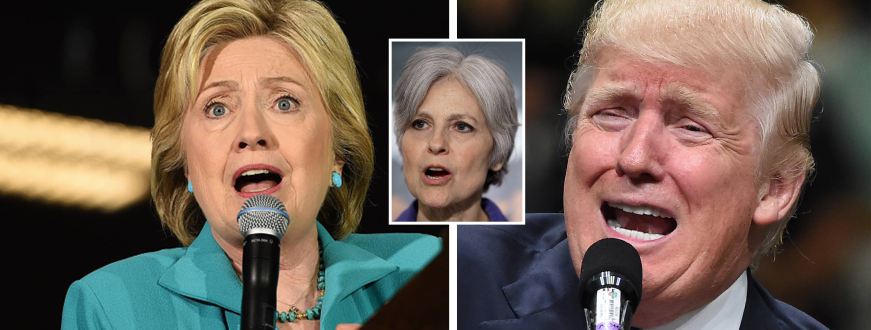
The first candidate-driven statewide recount of a presidential election in 16 years began Thursday in Wisconsin, a state that Donald Trump won by less than a percentage point over Hillary Clinton after polls long predicted a Clinton victory. The recount requested by Green Party candidate Jill Stein carries none of the drama of the Florida presidential recount of 2000, when the outcome of the election between Al Gore and George W. Bush hung in the balance. Almost no one expects Stein’s push for recounts in Wisconsin, Michigan and Pennsylvania to result in a Clinton victory over Trump. “This is certainly not Bush v. Gore,” said Wisconsin’s chief elections administrator Mike Haas. Even so, the campaigns for Trump, Clinton and Stein all had observers spread throughout the state to watch the recount. County election officials hired temporary workers, expanded hours and dusted off recount manuals to prepare for the work of re-tabulating nearly 3 million ballots. Most counties will manually recount the ballots, although Stein lost a court challenge this week to force hand recounts everywhere. The state’s largest county, Milwaukee, was planning to recount the ballots by feeding them through the same machines that counted them on election night. In Dane County, where Clinton won 71 percent of the vote, the ballots will be counted by hand. Workers in Dane County were being paid $20 an hour and will work two shifts for about 12 hours a day to get the recount done by the 8 p.m. Dec. 12 deadline, said County Clerk Scott McDonell. He didn’t expect much change in the results. “I think we will be very close to what was reported on election night,” McDonell said Thursday. Clinton lost to Trump by about 22,000 votes in Wisconsin. Wisconsin election officials have less than two weeks to complete the recount. Dec. 13 is the federal deadline to certify the vote to avoid having the fate of Wisconsin’s 10 electoral votes decided by Congress. Even if that were to happen, the votes would almost certainly go to Trump, since Republicans control both chambers of Congress. Stein has argued, without evidence, that irregularities in the votes in all three states suggest that there could have been tampering with the vote, perhaps through a well-coordinated, highly complex cyberattack. “Verifying the vote through this recount is the only way to confirm that every vote has been counted securely and accurately and is not compromised by machine or human error, or by tampering or hacking,” Stein said in a statement Thursday. “The recount does not benefit one candidate over another. It benefits all voters across the political spectrum. This is an essential first step to restore confidence in our elections and trust in our democracy.” Stein’s critics, including the Wisconsin Republican Party, contend that she’s a little-known candidate who is merely trying to raise her profile while raising millions of dollars. Stein had raised nearly $7 million, about twice as much as her longshot presidential campaign, to pay for the recounts. The Wisconsin recount was estimated to cost about $3.9 million, while Stein paid $973,250 for the recount in Michigan, which is scheduled to begin Friday. Stein filed a lawsuit Monday in Pennsylvania to force a recount there. Republished with permission of The Associated Press.
Jill Stein makes Michigan third state for presidential recount
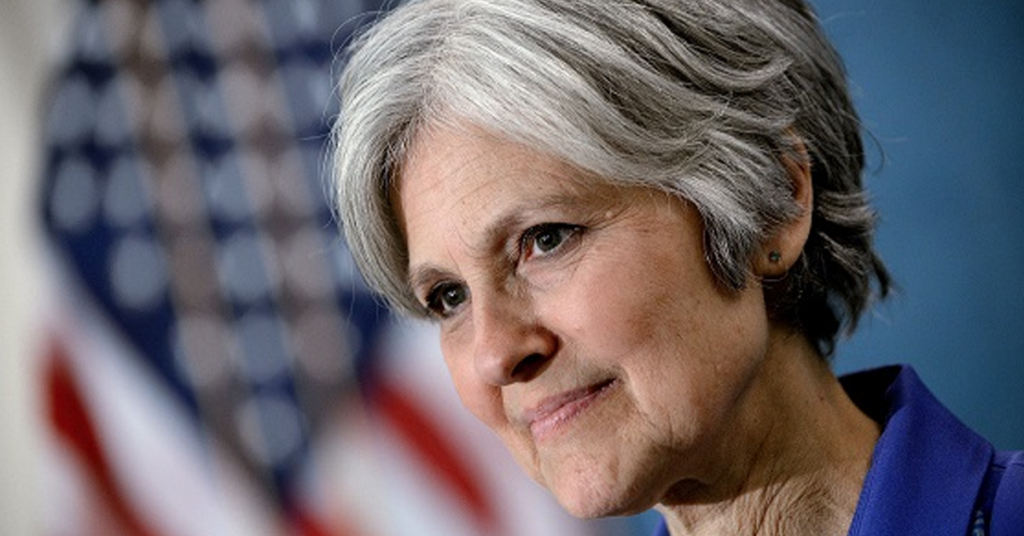
Green Party presidential nominee Jill Stein on Wednesday requested a full hand recount of Michigan’s presidential vote, making it the third state narrowly won by Republican Donald Trump where she’s asked for another look at the results. Stein previously requested recounts of the presidential votes in Pennsylvania and Wisconsin. President-elect Trump defeated Democrat Hillary Clinton by 10,704 votes out of nearly 4.8 million ballots cast in Michigan, but Stein alleges that irregularities and the possibility that vote scanning devices could have been hacked call the results into question. Elections officials in all three states have expressed confidence in their election results. Michigan’s recount could start as early as Friday, though a challenge to the recount by Trump could delay it. Trump’s victory is highly unlikely to be reversed in any of the states, but Stein has said the recount will ensure the integrity of the election. Republicans have said a Michigan recount would cost taxpayers far more than the $973,000 Stein must pay when filing her recount petition. Meanwhile in Wisconsin, where Trump defeated Clinton by roughly 22,000 votes, Stein’s campaign said Wednesday that it won’t appeal a judge’s ruling that Wisconsin’s recount can be done without counting every ballot by hand. Stein spokeswoman Margy Levinson said in an email that the campaign decided not to appeal the ruling due to the tight time constraints for completing the Wisconsin recount, which begins Thursday. Most Wisconsin counties plan to recount their ballots by hand even though the judge’s ruling means they can choose to feed the ballots into tabulation machines to double-check the results. Levinson said Stein’s focus will be on verifying the vote on the ground and she encouraged counties to voluntarily conduct a hand recount. The Wisconsin Republican Party filed a complaint with the Federal Elections Commission on Wednesday alleging that Stein’s recount effort amounts to illegal coordination with Clinton designed to circumvent the law and public scrutiny. Stein campaign manager David Cobb said in a statement that Stein is not coordinating with anyone and dismissed the complaint as a “PR stunt to push a false narrative that will ultimately have no impact on the recount in Wisconsin.” Trump defeated Clinton in Pennsylvania by about 71,000 votes, or about 1 percentage point. Republished with permission of The Associated Press.
In Donald Trump’s transition, the jockeying for jobs goes public

Want a top job in Washington? Saying less is usually the way to get more. But contenders – and wannabe contenders – for spots in President-elect Donald Trump‘s administration are upending that tradition. They’re touting their qualifications in public appearances and chatting openly about their interactions with Trump’s team. They’re handicapping their rivals. Some of those who appear to be under the most serious consideration are conspicuously strolling by the pack of journalists gathered in the Trump Tower lobby on their way to meetings with the president-elect and his team. Former New York Mayor Rudy Giuliani set the tone. After declaring that he wouldn’t serve as attorney general, Giuliani was asked whether there were better choices for secretary of state than some of names being bandied about. “Maybe me,” Giuliani said with a grin. Shortly after, a senior Trump official confirmed Giuliani was indeed under consideration to become the nation’s top diplomat. So, too, is Tennessee Sen. Bob Corker – at least according to the senator. “I know my name is in the mix,” Corker said, adding that he nevertheless expected the State Department post would go to someone more deeply involved with the Republican’s presidential campaign. In some ways, the more free-flowing discussion is a refreshing shift from the usual Washington parlor game, where job candidates publicly dismiss their chances with faux modesty, then use emissaries to ensure their name stays in the conversation. The current approach is also a reflection of the man whom the job hopefuls are trying to impress. Trump held what amounted to a public audition process when he was picking his running mate, inviting top contenders to appear with him at rallies and speak to his enthusiastic crowds. That approach had echoes of Trump’s reality television show, “The Apprentice,” where contestants competed for a job in one of the host’s businesses. But for much of the past week, Trump has uncharacteristically stayed out of the public fray as lawmakers, business leaders and others jockey for jobs in his administration. He’s made only a handful of public comments since winning the election and has largely avoided speculating on who could end up in the White House and Cabinet agencies. “I am the only one who knows who the finalists are!” Trump wrote on Twitter, which has served as his main form of communication this week. Kellyanne Conway, who managed Trump’s campaign, suggested the president-elect finds the public wrangling counterproductive. “These conversations are always best in private, particularly when you’re forming a Cabinet and a senior staff,” Conway said Thursday on MSNBC. “Which is why I don’t say too much about myself.” Moments earlier, Conway had confirmed that Trump offered her a job. “Mr. Trump asked me immediately if I would serve with him, come to the White House with him,” she said. It’s unclear what job Conway was offered or whether she plans to accept. Others have been more specific about how they hope to serve the newly elected president. Scott Brown, the former Massachusetts senator, volunteered himself to run the Department of Veterans Affairs. He told New England Cable News that if Trump offered him the VA post, “I’d do that in a second.” And if the Veterans Affairs job isn’t an option? “Then housing, I’m very passionate about housing,” Brown said. “I’d be honored to work at HUD.” Kansas Rep. Tim Huelskamp has floated himself as a possible agriculture secretary. He told reporters Wednesday that someone “close” to Trump’s transition team had reached out to discuss the post. Some potential Cabinet secretaries have preferred to go the more traditional route, bashfully brushing aside questions about the future. Alabama Sen. Jeff Sessions, a loyal Trump ally who has been discussed for multiple posts, wouldn’t bite Thursday when he appeared before reporters. In this one instance, however, Trump himself decided to stoke the speculation. His transition team released a statement Thursday that appeared to tee up Sessions to be nominated for attorney general. “While nothing has been finalized and he is still talking with others as he forms his cabinet, the president-elect has been unbelievably impressed with Sen. Sessions and his phenomenal record as Alabama’s attorney general and U.S. attorney,” the statement read. Republished with permission of The Associated Press.
Bernie Sanders calls on Donald Trump to apologize for campaign rhetoric
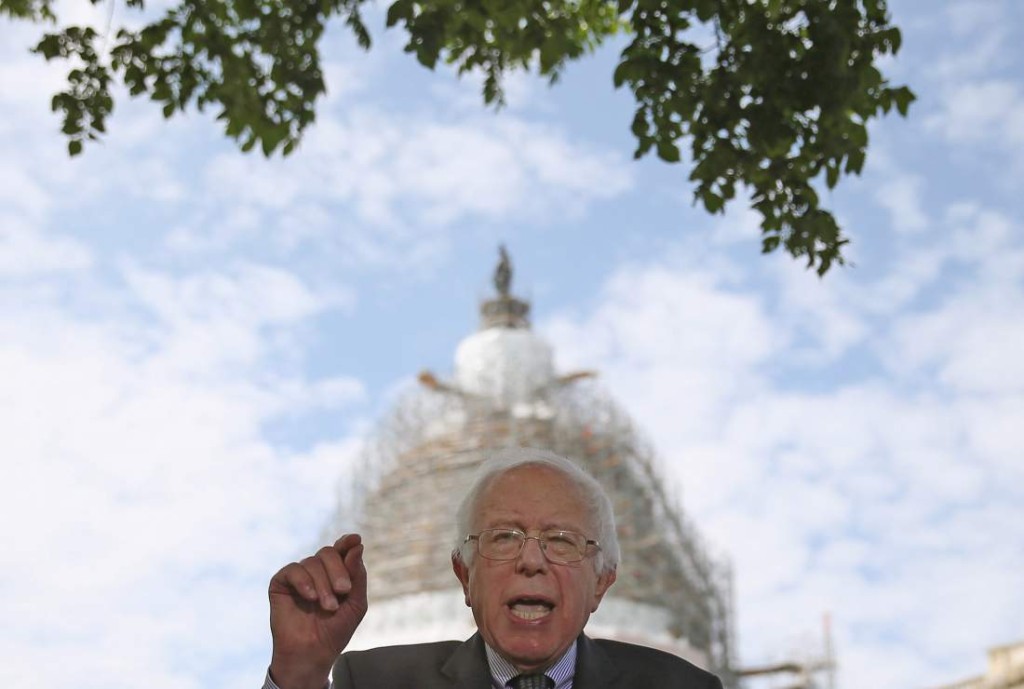
Vermont Sen. Bernie Sanders called on Donald Trump to apologize for his inflammatory rhetoric during the presidential campaign and asked him cut ties with campaign CEO Steve Bannon. The president-elect named Bannon as a top White House adviser on Monday, sparking an outcry from Democrats who blasted the conservative media CEO as peddling conspiracy theories and white supremacy. Sanders, who lost the Democratic presidential nomination to Hillary Clinton, says his office received “many, many” calls asking Trump to withdraw the appointment. “What we are seeing all over this country is extraordinary fear,” Sanders said at a breakfast sponsored by the Christian Science Monitor. He said Trump should try to “make the American people feel comfortable” by rescinding Bannon’s nomination. The self-identified independent also said there may be opportunities for Democrats to work with Trump on some of his campaign promises including curbing high pharmaceutical drug pieces, renegotiating trade deals, cutting the influence of Wall Street and other ideas that will “improve life for working people.” “He said a whole lot of things. Was he serious or were these just campaign slogans?” he said. “We will hold him accountable.” Sanders told reporters that he hasn’t spoken personally to Clinton but believes she has an important role to play in the party’s future. She made her first public remarks since her concession speech in Washington on Wednesday evening, urging her supporters to “stay engaged” in political activism. Democrats, he said, must do some “soul searching” in the coming months. He’s backing Minnesota Rep. Keith Ellison head up the Democratic National Committee, arguing the first Muslim-American member of Congress could bring some fresh ideas to the party. “It is time for the Democratic party to reassess what it stands for and where it wants to go,” he said. Republished with permission of the Associated Press.
SPLC says over 400 hate crimes reported since election

More than 400 incidents of harassment or intimidation have been reported following the election of Donald Trump, according to the Southern Poverty Law Center (SPLC). The civil rights organization released a report totaling 437 incidents nationwide through Monday evening, but said reports have continued to come in. Collected through news reports, social media, and direct submissions via SPLC’s #ReportHate page, the SPLC says these incidents, range from anti-Black to anti-woman to anti-LGBT incidents. There were many examples of vandalism and epithets directed at individuals. Anti-Black and anti-immigrant incidents were far and away the most reported with anti-Muslim being the third-most common. The category of “Trump” consisted of incidents where there was no clear racially defined target. There have also been reports of violence against Trump supporters. The SPLC has called on Trump to openly condemn these hate-based incidents. and asks that those who experience or witness harassment or intimidation to report it to both law enforcement authorities and the SPLC. And while President-elect Trump addressed the issue during an interview on “60 Minutes,” outgoing Senate Minority Leader Harry Reid thinks Trump needs to do much more. “Stop hiding behind your Twitter account. And show America that racism, bullying and bigotry have no place in the White House or in America,” Reid said. Here are a few examples of some of the reports: Georgia A Gwinnett County high school teacher said she was left a note in class Friday telling her that her Muslim headscarf “isn’t allowed anymore.” “Why don’t you tie it around your neck & hang yourself with it…,” the note said, signed “America!” Texas A Latina women reported: I was walking my baby at my neighborhood park and a truck drove by with a male driving and a female passenger. The female yelled “white power” at us as they drove by and then sped away. Oregon A Muslim woman was riding the Max to Beaverton in the early afternoon and a group of teenagers went to the corner of the car where she was sitting and got up in her face yelling at her that she was a terrorist, that our new president was going to deport her, that she can’t wear her hijab anymore. They got increasingly menacing, and my friend went over and made them get off the train. When they were leaving through the door they tried to spit on her. Aside from news reports, SPLC notes that these reports are largely anecdotal as every incident could not be immediately, independently verified.
RNC Chairman Reince Priebus chosen as Donald Trump’s WH chief of staff
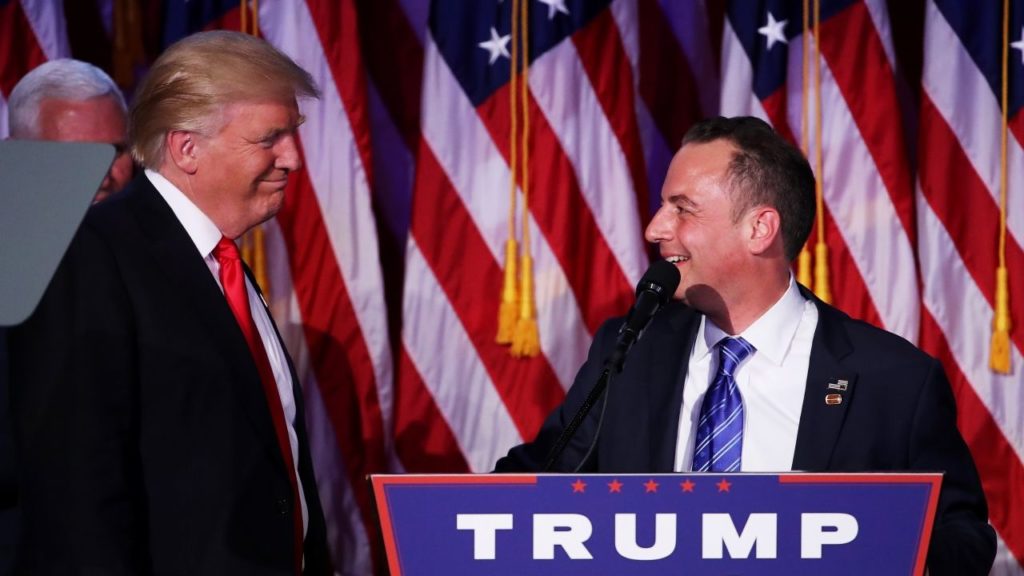
In the year of the outsider, Reince Priebus was the face of the Republican establishment. Yet the Republican National Committee chairman would come to earn the trust and confidence of President-elect Donald Trump, who on Sunday named Priebus as his chief of staff, along with flame-throwing media executive Stephen Bannon as his chief strategist. The position puts Priebus at the power center of the new Trump administration. The 44-year-old Wisconsin political operative will help guard access to the president-elect, guide policy and political decisions, and if past practice holds true, will often be, along with Bannon, the last person Trump consults before making major decisions. Priebus has no governing experience in Washington. Yet his extraordinary ability to build and maintain relationships with his party’s power brokers and grassroots sets him apart from other prospective chiefs of staff. The affable and slow-talking Priebus maintains a particularly close relationship with House Speaker Paul Ryan, who is also from Wisconsin. At the same time, Priebus may have been almost as popular among the Republican National Committee’s 168 members, who represent many different factions of the GOP and come from every state in the nation. Trump’s new chief of staff and the House speaker met in the late 1990s when Priebus was a party activist in Kenosha County, Wisconsin, and Ryan was running for Congress. Priebus eventually became the party chairman of Kenosha County, the First District (the speaker’s district) and then Wisconsin party chairman. He’s been a friend and adviser to Ryan all these many years. Priebus was already the longest serving chairman in party history, having worked in that role since January 2011, but he easily could have been re-elected early next year had he wanted to seek another term. More than anything, he served as the chief fundraiser for the Republican National Committee, a job he did very well. He used the tens of millions of dollars he helped raise to create a nationwide voter outreach operation that fueled Trump’s stunning victory. Still, his status as a party insider caught the attention of Trump supporters such as tea party leader Jenny Beth Martin. She warned on Saturday that, “No Washington insider, regardless of who it is, should serve as President Trump’s chief of staff.” “It’s time to drain the swamp – not promote insiders beholden to the Washington establishment who helped create it,” she said. Priebus’ ability to earn Trump’s trust and confidence ultimately outweighed any political concerns. He was perhaps the only major establishment leader to stand with Trump over the campaign’s final weeks as much of the political world predicted the Republican nominee would lose the election. Priebus became Trump’s regular traveling companion and confidant. He was optimistic until the very end. “I don’t buy this conventional wisdom that somehow or other, things are bad. I think things are going well,” he told The Associated Press a few days before the election. Priebus, a big Green Bay Packers fan, likes to talk sports, he plays the piano and is quick to poke fun at himself. His easygoing personality, self-deprecating humor and lack of knowledge of the legislative process, mark a particularly sharp contrast with President Barack Obama‘s first chief of staff, Rahm Emanuel. He married his high school sweetheart, Sally. They have two school-age children. Priebus “gets along with pretty much everybody,” said Lanhee Chen, a former top adviser to the GOP’s 2012 presidential nominee Mitt Romney. Chen called the pick “a terrific decision.” ”I think it reflects an understanding that, first of all, you have to have someone who understands the politics of Washington,” he said. Priebus has long favored a “big-tent” political philosophy that encourages the GOP to adopt a more welcoming and inclusive tone. Back in December, he condemned Trump’s plan to ban Muslim immigrants in December. “I think it’s the party for everybody. It’s for everyone,” Priebus told the AP days before Trump’s victory. “That the message that we’re trying to get out across the country, which is it doesn’t matter what the color of your skin is, what your faith is, what gender you are, or what age you are. This is a party of freedom, opportunity and equality. That’s what our party is.” Republished with permission of the Associated Press.
Martha Roby: Turning election energy into results
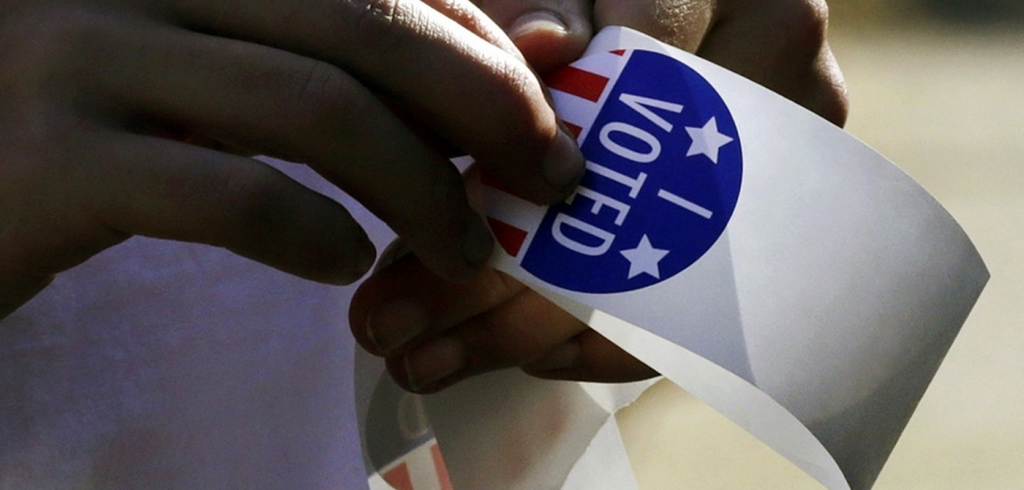
It has now been just a week since the 2016 election, which will certainly go down as one of the most consequential in modern American history. In the early morning hours when the race was finally called, I offered my sincere congratulations to President-Elect Donald Trump and Vice President-Elect Mike Pence, and expressed how eager I was to get to work putting our country back on track. There’s no question that in electing Donald Trump President and maintaining Republican majorities in the House and Senate, Americans sent a clear message that we must turn away from the top-down, big-government, Washington-knows-best approach of the Obama era to a more conservative, sustainable path. After six years in Congress of playing defense against the Obama Administration, I’m looking forward to playing offense with a Republican-led House, Senate, and White House and hopefully being able to get more done. I am grateful for the opportunity to serve another term and, no matter what, I will continue fighting on behalf of the people of the Second District and maintaining my focus on the issues that matter to you. I have been asked many times lately what I believe are the most important issues facing our country as we move forward. From my perspective, our most pressing issue is stopping the financial squeeze that so many middle class families are facing. One takeaway from this election I want to press with Republican leadership in Congress is how so many working people feel marginalized in a country where the outcomes seem predetermined and the deck is stacked against them. Whether it is on trade or taxes or immigration or health care, we need to be crafting policies that address the real problems facing the American worker and their families. I feel like sometimes we talk a lot about how conservative policies will help the person that owns the factory, but we need to spend more time explaining how they will benefit the men and women working inside it. I’m eager to carry that message back to Washington. On health care, I’m looking forward to being in a position to finally deliver patient-centered reforms that offer more choices, lower costs, and more flexibility. On taxes, I believe perhaps the fastest way to improve economic conditions for all Americans is to deliver a simpler, fairer, flatter tax code. We can jumpstart job growth by lowering taxes for everyone while making the code more competitive for businesses and more workable for American families. It is also critically important that we get our fiscal house in order. We need to pass a budget that puts our country on a path to balance, and we need to set strict spending priorities that are more transparent and accountable to the people we represent. There are so many other priorities to work on: strengthening border security and enhancing immigration laws; continuing improvements to veterans services; reversing cuts to our military and building up readiness; pursuing more sustainable agriculture policies – the list could go on. There’s no doubt the election was consequential. Our task now is to turn that election energy into actual results, making sure the new conservative governing majority delivers meaningful solutions that address real problems Americans are facing. ••• Marta Roby represents Alabama’s 2nd Congressional District. She lives in Montgomery, Alabama with her husband Riley and their two children.
Donald Trump could reshape Justice Department’s civil rights focus
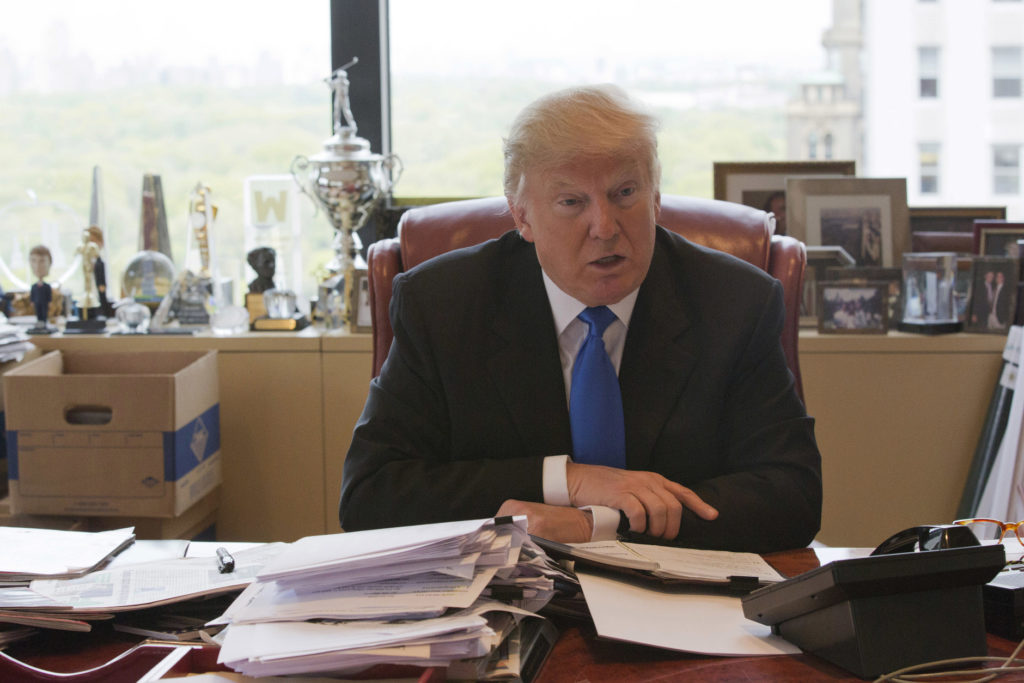
A Donald Trump administration could radically reshape the Justice Department, particularly civil rights efforts that became one of its most pressing and high-profile priorities over the past eight years. The department, under the Obama administration and the country’s first two black attorneys general, has investigated about two dozen police agencies for civil rights violations and reached court-enforceable consent decrees with many of them. It refused to defend a federal law that banned the recognition of gay marriage. It sued North Carolina over a bathroom bill that it said discriminated against transgender people. And it implemented new racial profiling limits on federal law-enforcement agencies. But Trump’s election has stirred concern from civil rights advocates that some of that work could be undone, set aside or at least minimized under a Trump administration. “The Civil Rights Division was just building a head of steam over the last two, three years, and it raises really serious concerns about whether we now lose traction on these issues,” Anthony Romero, executive director of the American Civil Liberties Union, said of a section that former Attorney General Eric Holder called the “crown jewel” of the department. One overt change could come in the department’s approach toward policing and relationships between law enforcement and the communities they serve, an issue that’s moved to the public forefront in the last two years. Trump’s talk of a “law and order” approach to crime fighting and his praise for stop-and-frisk police tactics are out of step with a Justice Department that has advocated community policing and decried strategies it considers unconstitutional or discriminatory. “He talked about things like the war on police, that we need more stop and frisk, that the Black Lives Matter movement has placed police officers at risk in ways that are really concerning,” said Jonathan Smith, a former Justice Department civil rights official who oversaw the investigation into discriminatory practices by the Ferguson, Missouri, police force. “The last law-and-order president was Richard Nixon,” Smith said. The rhetoric resembles that of Rudy Giuliani, the former New York mayor who’s expected to be considered for the position of attorney general. Under the Obama administration the Justice Department has opened wide-ranging investigations of 23 police departments, including those in Baltimore, Chicago and Ferguson. It’s enforcing 19 agreements, including 14 court-enforceable consent decrees. While those agreements are unlikely to be reversed, new attorneys could be lax in enforcing them or in requiring meaningful change when additional police departments come under scrutiny, Smith said. And different leadership may see less value in some of the community meetings and round-table discussions promoted by Justice Department officials as a way to seek reconciliation between police and minorities. Also subject to change is the department’s overall approach to the thousands of drug prosecutions it brings each year, embodied in a 2013 policy initiative known that discouraged prosecutors from seeking harsh prison sentences for nonviolent offenders. A new administration might also seek changes on the national security front, including how terrorism cases are prosecuted and broader surveillance powers – particularly of Muslims. Attorney General Loretta Lynch acknowledged the prospect for change Thursday, saying in a speech that while “some policies and priorities may shift over the span of time or the turn of the electoral wheel.” Career attorneys throughout the Justice Department, including at the Civil Rights Division, are intended as a stabilizing and apolitical force across different administrations, but there hasn’t always been a clear line. A 2008 inspector general report identified instances in the Bush administration when the Civil Rights Division considered political and ideological affiliations in hiring career attorneys or assigning cases. But it’s the department’s political appointees, who routinely change with presidential administrations, that “set the tone and the direction and determine the vigor of civil rights enforcement,” Romero said. At the Civil Rights Division, that includes its leader, Vanita Gupta, a former ACLU attorney who earlier in her career led an effort to overturn wrongful convictions of drug defendants in Texas. Under her watch, the federal government has routinely become involved in state and local matters that officials believe brush up against constitutional protections. That includes a directive to schools that they permit students to use the bathrooms that match their gender identity, and a policy document discouraging municipal courts from jailing citizens for nonpayment of fines and fees. In an Idaho case, the department also argued that local police can’t arrest the homeless for sleeping in public, and worked in Tennessee to get juvenile suspects access to attorneys. New department leadership could well take different stances on issues like those, or steer clear of federal intervention altogether. And while federal civil rights statutes will surely remain on the books for enforcement, advocates are concerned that their causes won’t have the same commitment they’ve had under President Barack Obama. “We intend to fight, we intend to ensure that we do not go backwards,” Sherrilyn Ifill, president of the NAACP Legal Defense Fund, told reporters Thursday. “We believe that we have the Constitution and the laws of our nation on our side.” Republished with permission of the Associated Press.
Transition begins with Donald Trump keeping journalists in the dark
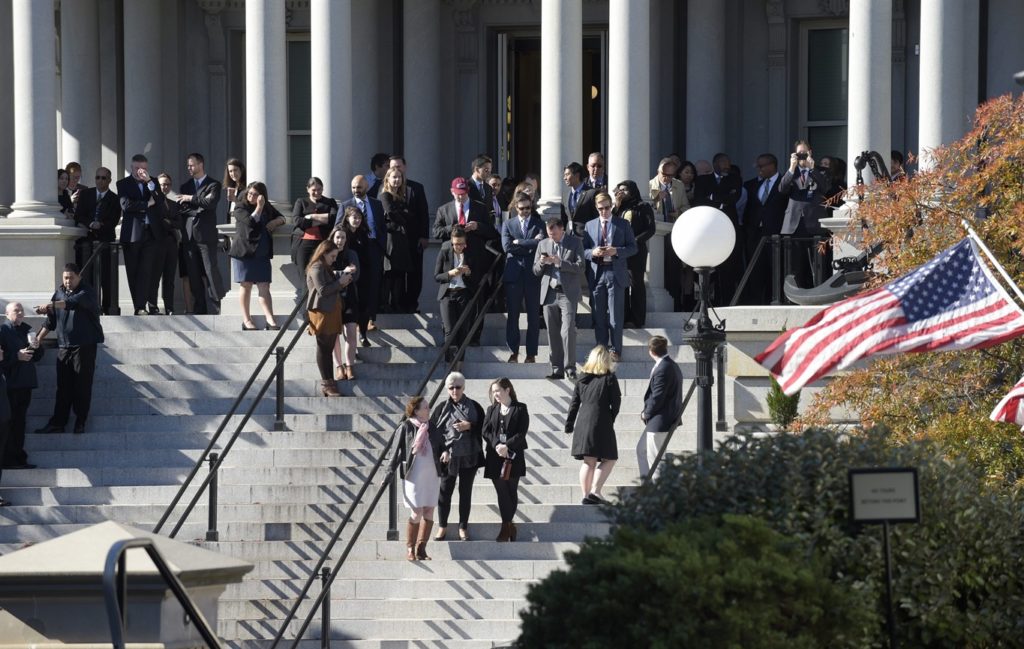
Donald Trump is keeping Americans in the dark about his earliest conversations and decisions as president-elect, bucking a long-standing practice intended to ensure the public has a watchful eye on its new leader. Trump on Thursday refused to allow journalists to travel with him to Washington for his historic first meetings with President Barack Obama and congressional leaders. The Republican’s top advisers rebuffed news organizations’ requests for a small “pool” of journalists to trail him as he attended the meetings. The decision was part of an opaque pattern in Trump’s moves since his victory Tuesday. He was entirely out of sight on Wednesday. His aides said he was huddled with advisers at his offices in New York. His team has not put out a daily schedule, or offered any detailed updates on how he has spent his time. They have not acknowledged phone calls or other contact with world leaders. When Russian President Vladimir Putin sent a congratulatory telegram to Trump on Wednesday, Moscow spread the word. A phone call with British Prime Minster Theresa May was announced in London. The pattern was repeated for calls with leaders of Israel, Egypt, South Korea and Australia. The White House typically releases statements on the president’s phone calls with foreign leaders, providing some details about the conversation. Past presidents-elect have had early briefings with journalists, even in confusing first hours after Election Day. But early signs suggest Trump is willing to break protocol when it comes to press access and transparency. As a candidate, Trump railed against the press as “disgusting” and “dishonest.” He refused to allow a pool of campaign reporters and photographers to fly on his plane to events, sometimes starting his rallies before his press corps had arrived. The practice did not extend to his running mate, Mike Pence, who was followed by a traditional pool of journalists. News organizations had tried for weeks to coordinate a pool of journalists to travel with Trump immediately after Election Day if he won. The Associated Press is among those reaching out to Trump advisers about press access. Trump spokeswoman Hope Hicks said the president-elect’s team expects “to operate a traditional pool and look forward to implementing our plans in the near future.” The White House Correspondents’ Association, which coordinates press pools and advocates for transparency at the White House, urged Trump to allow journalists to cover his meetings and other movements. “This decision could leave Americans blind about his whereabouts and well-being in the event of a national crisis,” said Jeff Mason, White House correspondent for Reuters and the group’s president. “Not allowing a pool of journalists to travel with and cover the next president of the United States is unacceptable.” Trump’s meeting with Obama in the Oval Office was recorded by the pool of White House reporters, photographers and TV journalists who cover the president. Every president and president-elect in recent memory has traveled with a pool of journalists when leaving the White House grounds. A pool of reporters and photographers was in the motorcade when President John F. Kennedy was shot and killed in Dallas. The pool was just steps away from President Ronald Reagan when he was shot outside a hotel in the District of Columbia, and was stationed outside his hospital as he recovered. The pool also travels on vacation and foreign trips and at times captures personal, historic moments of the presidency. The practice makes journalists eyewitnesses to how the president conducts business, rather than relying on secondhand accounts. They often capture more intimate moments between the president and people he greets. The White House, meanwhile, depends on having journalists nearby at all times to relay the president’s first comments on breaking news. News organizations take turns serving in the small group, paying their way and sharing the material collected in the pool with the larger press corps. The pool also covers official events at the White House when space doesn’t allow for the full press corps. Because of safety concerns, presidents and presidents-elect travel in a bubble of security, with the exact timing of their travel kept secret and streets often blocked off around their events. That leaves news organizations dependent on the White House to facilitate the pool coverage by arranging security clearances and transportation. Obama also has looked for new ways to limit White House press access. On Thursday, photographers were not allowed to shoot a meeting between first lady Michelle Obama and Melania Trump, who joined her husband on the White House visit. The White House released a photo taken by a staff photographer and circulated it on social media. The AP does not distribute such photos. White House photographers were allowed to shoot a similar meeting between Mrs. Obama and then-first lady Laura Bush eight years ago. Republished with permission of the Associated Press.
Post-election, what’s this strange relationship we’re in?
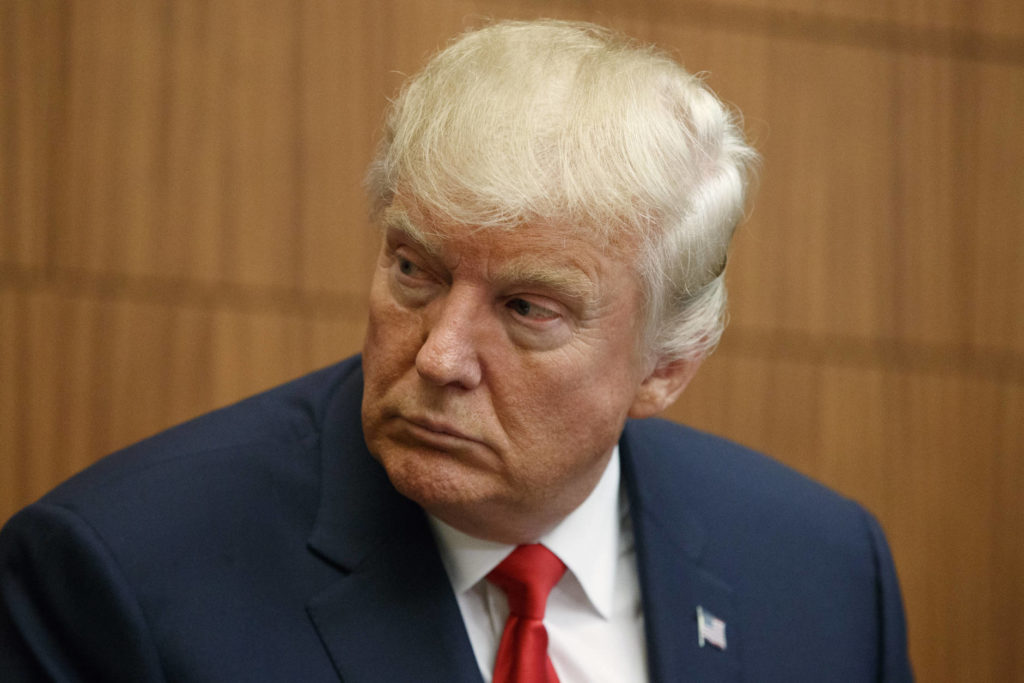
The election is over, so what about all those frayed relationships among loved ones? Mothers and sons, sisters and brothers, friends unfriended – it’s been tough for some on opposing sides who must now figure out the way forward. They wonder what their ties will feel like a month from now. A year. What about the holidays? Leigh Anne O’Connor in Manhattan already has her answer, and her heart broke. “My dad just called and said he is not coming for Thanksgiving,” she said Thursday. “I cried last night when we hung up.” He supported President-elect Donald Trump, along with one of her sisters and other relatives. She did not. “He got into a ‘discussion’ on Facebook with a friend who will be at Thanksgiving and he also read something my oldest daughter wrote against our family members who supported Trump,” O’Connor explained. “My mom was always liberal. She died 12 years ago. Things would be different if she was still alive.” In Los Angeles, Tonya McKenzie said she expects her big brother to show up for turkey despite their political differences. She has always looked up to him but anticipates a new level of “awkwardness” after he went on a few social media rampages disparaging Hillary Clinton. Until then, McKenzie said they had been able to thoughtfully agree and disagree on specific issues and traits they liked about each presidential candidate, with the siblings often crossing party lines together. McKenzie wound up voting for Clinton. Though she likely knows the answer, “I’m scared to ask him who he voted for,” said McKenzie, who would rather dwell on more positive times. For Clinton supporter Taz Loomans, who lives in Portland, Oregon, her ache comes over her relationship with her older sister. Like McKenzie, she hasn’t asked whether her loved one – both are 40-somethings – cast a vote for Trump. Loomans doesn’t want to seal that in words. “We’re a Muslim family. She hadn’t been with Trump the whole time. She was really appalled at his candidacy and his racism. But at the end she said she hated Hillary more and was really suspicious of Hillary,” Loomans said. Their bond is battered but not broken, she said, and she’s not sure how her feelings will settle. They’ve spoken since the election. “I love my sister. I’m not going to disown her or stop speaking to her, but I’ve always looked up to her and her opinions. If she disagreed with me, it always made me think, oh maybe she has a point,” Loomans said. “But this kind of takes that away. She’s not on a pedestal anymore.” The election cycle has clearly left some families battered, along with Amanda Rose in Louisville, Kentucky. She’s a professional matchmaker. “I had one man that refused to continue to date a lady that voted for Trump. I have heard of countless conflicts with dates because of the election. It’s been so bad I’ve decided not to set up any more dates till next week,” Rose said Thursday. It’s a husband-wife thing for Bill Seavey in Cambria, California. She’s from Canada and a Trump voter. He was for Clinton. “There were some hurt feelings that we wouldn’t accept each other’s viewpoints,” he said. “We’re civil people, love each other and we agreed to disagree. But I’m glad the election is over!” Republished with permission of the Associated Press.
A breakdown of 14 amendments approved by Alabama voters
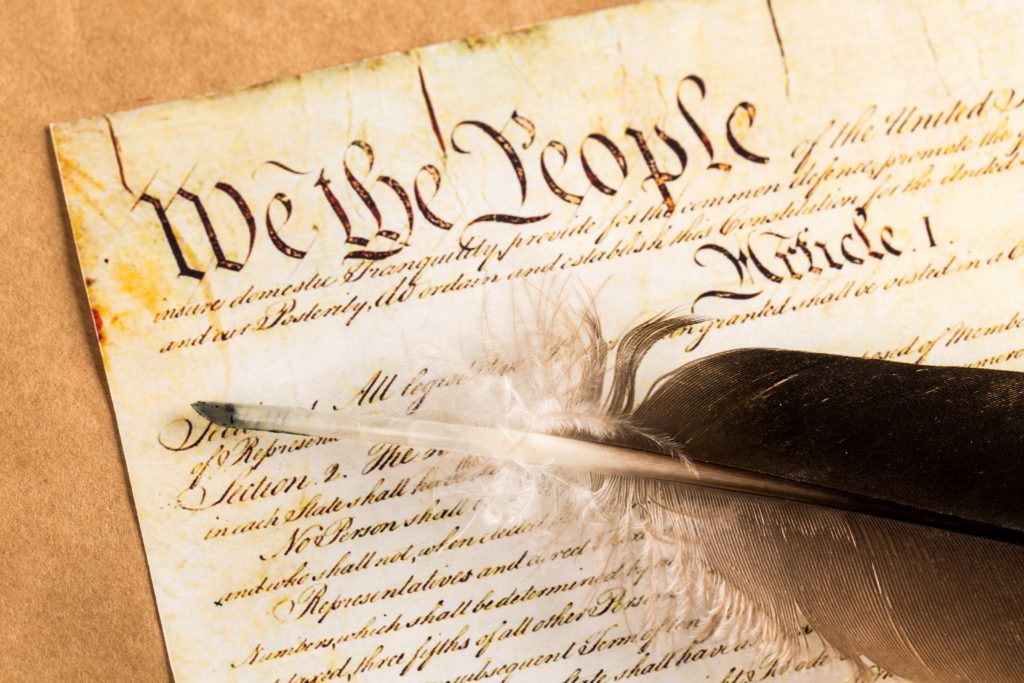
While the presidential race may have taken center stage on Tuesday, Alabama voters were presented with up to 14 additional ballot measures proposing changes to the Alabama Constitution, all of which were approved. Ratified in 1901, the Constitution frequently sees amendments come Election Day, and now has over 900. On Tuesday, some amendments were statewide while others were only seen in specific localities. Below is a summary of the 14 approved constitutional amendments: Amendment 1: Board of Trustees for Auburn University: Establishes procedures to ensure that no more than three of the members of the Auburn University Board of Trustees shall have terms that expire in the same calendar year, and adds two at large members to the board. Amendment 2: State Park funding Protects money generated by and for state parks from being moved to other government functions. Also allows the state to use private vendors to run hotels and amenities at more state parks. Amendment 3: Local rules governing amendments Allows the state Legislature to decide by resolution if proposed constitutional amendments affecting a specific local area shall be voted on statewide or only in the affected county. Amendment 4: Administrating county business Authorizes each county commission in the state to establish, subject to certain limitations, certain programs related to the administration of the affairs of the county including controlling weeds, junkyards, litter and rubbish, noise, pollution, sewage and animal control without having to ask permission from the state Legislature. Amendment 5: Separation of powers Repeals and rewrites sections of the Alabama Constitution concerning separation of powers to modernize language — such as the removal of the phrase “to wit” — without making any substantive changes. Amendment 6: Impeachment rules Establishes that a two-thirds majority vote of the Alabama Senate is required to remove an impeached public official from office. Previously, no margin was specified for removal. Amendment 7: Etowah County sheriff’s office Requires employees of the Etowah County Sheriff’s Office — except for the chief deputy, chief of detention, chief of administration, chief of investigation, director of communications, and food service manager — be under the authority of the Personnel Board of the Office of the Sheriff of Etowah County. Amendment 8: Labor and unions Adds Alabama’s right-to-work law in the Constitution, stipulating that employers cannot require employees to join unions or pay union dues. Amendment 9: Pickens County judge Makes an exception in the age limit for judges to allow someone up to age 75 to be elected or appointed to the office of Judge of Probate of Pickens County. Amendment 10: Calhoun County land Prevents cities and towns outside Calhoun County from being able to exercise police jurisdiction within Calhoun County. Amendment 11: Tax revenue Allows cities and counties to sell certain property they own for less than fair market value if it is located in areas specially designated as suitable for certain major manufacturing facilities in order to incentivize the establishment and improve various types of manufacturing facilities. Amendment 12: Baldwin County transportation Authorizes the state Legislature to create a toll road and bridge authority for a city or town in Baldwin County and they would oversee the construction and operation of toll roads and bridges within the city or town. Also authorizes the authority to issue revenue bonds to finance the projects. Amendment 13: Elected official age restrictions Repeals age restrictions for elected and appointed officials, with the exception of judges. The provision would also prevent lawmakers from approving new age caps without voters’ consent. Amendment 14: Budget, validating local laws Validates hundreds of local laws passed under a now disputed legislative procedure.
Alabama Democratic Party offers Donald Trump congratulations, support
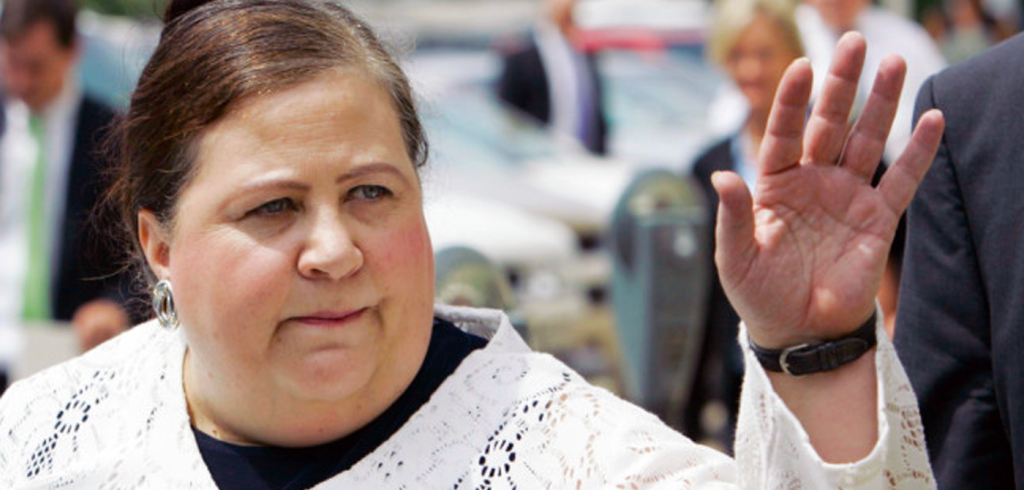
Tuesday night billionaire businessman Donald Trump swept the electoral map in a historic upset that left Democrats across the country shocked and the nation divided. But the Alabama Democratic Party is putting forth an effort to close the divide, offering the newly elected Trump their congratulations and support. “We congratulate the winners and offer our support as they attempt to unify our divided country,” said Nancy Worley, Chair of the Alabama Democratic Party. Worley continued, “we must all unify as a state and nation to guarantee that our children receive a world-class education in well-funded public schools. We must support our working men and women with job training and employment opportunities, higher pay, and affordable health care. We must protect our senior citizens ‘ retirement and Social Security, as we expand their options for long-term independent living.” Trump defeated his Democratic opponent Hillary Clinton — who would have been the country’s first woman President in its 240-year history — and succeeds Democratic Barack Obama, the first African-American President of the U.S. Clinton also congratulated Trump early Wednesday morning, shortly after the race was officially called in his favor. Later in the day, she delivered a somber concession speech where she told her supporters to have an open mind and give the future president a chance. “Last night, I congratulated Donald Trump and offered to work with him on behalf of our country. I hope that he will be a successful president for all Americans,” Clinton said. “Donald Trump is going to be our president. We owe him an open mind and a chance to lead.”


